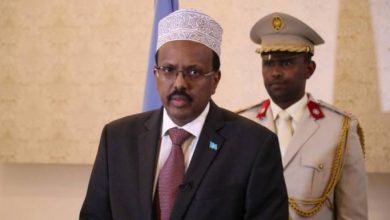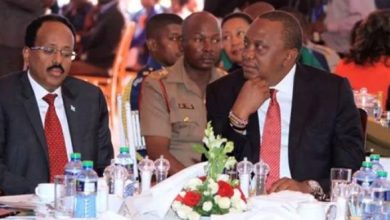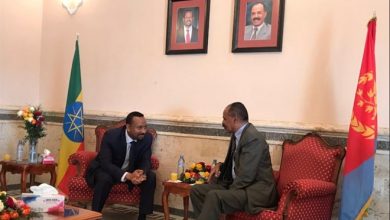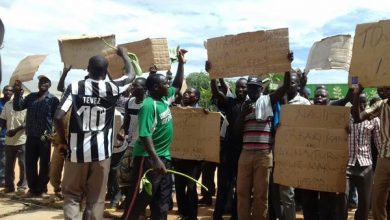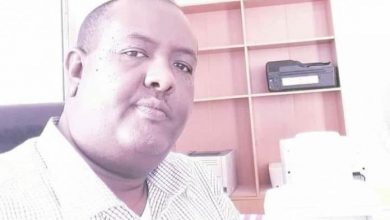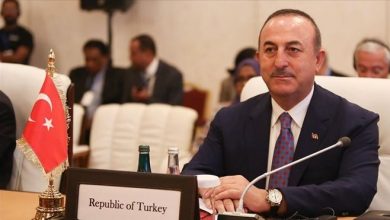In the aftermath of George Floyd killing, an uneasy discussion about racism in Minnesota’s Muslim community
The warning came as Iman Hassan walked over one Ramadan night to grab some Mediterranean food on a table close to the women’s prayer space at Masjid Al-Israa in Fridley. “Don’t go there yet,” she heard an Arab woman tell her children. “The Somali hyenas are over there.”
The warning came as Iman Hassan walked over one Ramadan night to grab some Mediterranean food on a table close to the women’s prayer space at Masjid Al-Israa in Fridley. “Don’t go there yet,” she heard an Arab woman tell her children. “The Somali hyenas are over there.”
Sedika Gazey, who describes herself as a “dark-skinned” Yemeni who rented a basement room from a Palestinian-Jordanian Muslim family in Minneapolis, had to put up with one little boy who called her the N-word. Each time he said it, his mom laughed and said, “Oh, it’s OK. He doesn’t know.”
Kamal Hassan watched Somali congregations evaporate from their beloved Masjid Al-Tawba in Eden Prairie after an Arab mosque leader called them “cockroaches” because they didn’t follow the parking instructions he laid out for them.
The killing of George Floyd on Memorial Day, which has ignited high profile demonstrations against racism across the United States, is also helping to expose long-festering wounds of racism in Minnesota’s estimated 150,000-member Muslim community. In the fraught atmosphere after Floyd was killed by a Minneapolis police officer, racist comments surfaced on social media that Lianne Wadi, the daughter of Holy Land CEO Majid Wadi, and her cousin Suleiman made on Instagram several years ago.
Layla Asamarai and Julie Henderson, Twin Cities Muslim scholars who lead regular online discussions that typically focus on mental health issues in the community, focused their talk over the weekend on the history of race, the persistence of racism and the importance of speaking frankly about anti-blackness — even if it means airing the community’s dirty laundry.
Imam Asad Zaman, executive director of Muslim American Society of Minnesota, urged people in a Facebook post to “uproot the sin of racism” from their community and to stand in solidary with black Americans in their struggle for justice.
Many religious leaders in Minnesota — and across the nation — also addressed the issue in their Friday sermons. Ordinary Muslims who don’t have access to large platforms took to their personal social media accounts to express their frustration with bigotry in the community.
‘It was taboo to talk about it’
Prior to the death of Floyd, an African American who gasped for air as a white police officer knelt on his neck, the community was loath to discuss racism. “It was a taboo to talk about it,” said Kassim Busuri, executive director of Islamic Da’wah Center and former St. Paul City Council member. “We knew that racism existed; we didn’t talk about it.”
The few times it was brought up, he added, were in religious settings in which scholars underscored the idea of a global Muslim community — or Ummah — where all people are equal, irrespective of their race, ethnicity and class.
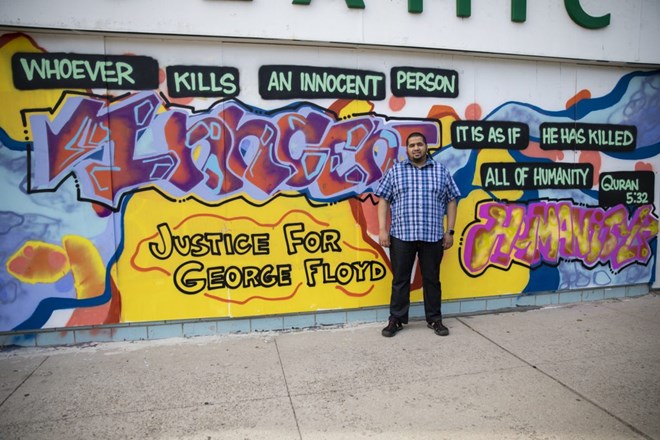
Kassim Busuri, executive director of Islamic Da’wah Center and former St. Paul City Council member. Credit: Jaida Grey Eagle | Sahan Journal
The tendency to downplay racism persists in many countries of the Islamic world, where the legacy of slavery and anti-blackness lingers. In places like Mauritania and Morocco, wrote Chouki El Hamel, professor of history at Arizona State University, people are still reluctant to discuss issues of race, despite having populations of black slave descendants.
In Minnesota, it’s exacerbated by the legacy of slavery and discrimination through centuries of U.S. history. The Muslim community in Minnesota comes from diverse backgrounds that include Bengali, Egyptian, Ethiopian, Indian, Iraqi, Liberian, Jordanian, Pakistani, Palestinian, Somali, Yemeni as well as white and black American. While the majority of the Muslims in the state came as immigrants and refugees, the first known practicing Muslims in America were enslaved Africans.
Historians estimate that 10-25 percent of the enslaved Africans in America were Muslims. But in Islamic schools and at religious settings in the U.S., the contributions and experiences of those early black Muslims and many others who arrived subsequently remain overlooked.
Racism in Minnesota Muslims
Iman, a Somali American attorney in Minneapolis, was with her mother, cousins and friends on that Ramadan night. They had planned to spend time at the mosque and be with the rest of the faithful, praying together and sharing meals in commemoration of the holy month.
But after the “hyena” comment, things were never the same. “That became such a big thing that no one touched the food anymore,” she said. “It was shocking that during that time, right after prayer, that someone spoke these really disgusting words.”
Iman said she wasn’t surprised when the racist Instagram posts of Lianne and Suleiman Wadi, whose family comes from Jordan and Kuwait, resurfaced last week. Growing up in northeast Minneapolis, Iman said, she watched non-black Muslims make disparaging comments about Muslims of her kind.
“This isn’t just happening once or twice,” she said. “It’s happening constantly. It’s not a one-off incident. It’s a pattern.”
Sedika, who’s a Yemeni Arab, finds that some other Arabs will look down on her or call her names because of her skin color. “A lot of people think I’m black,” she said. “And that’s OK. There’s no problem with being black.”
But the actions of her landlord’s child were hurtful, she said, especially when his mother laughed it off. “They think of themselves as superior because of their skin color and class,” she said.
Kamal watched for several years as Somali congregations fled Masjid Al-Tawba in Eden Prairie after Arab leaders at the mosque described them in derogatory terms. The last straw was when a Lebanese board member took the microphone between prayers during Ramadan in 2016 and called Somalis “cockroaches” because of parking issues.
“I know racism is everywhere but experiencing it at the mosque wasn’t something I expected,” Kamal said. “Somalis are no longer at the mosque now. They fled. They established their own mosque in Minnetonka.”
Busuri says it can work both ways. He said he sees racist behavior by Somalis, especially in social matters like marriages. “You have Somali families disowning their daughters,” he said, “because they marry a white Muslim or an Arab Muslim.”
Public discussions on racism
One reason racism has been rarely discussed, Iman said, is that faith has helped people get beyond individual instances. “Each time something happens, all of us go, pray and forgive — and then we just move on,” she said.
Layla, a clinical psychologist, said another reason Muslims have been loath to talk about racism is the scrutiny they’ve endured in recent decades. They have wanted to avoid public attention, including taking on anti-racism initiatives or participating in demonstrations such as those seeking justice for Floyd.
Other Muslims resist discussing racism because they don’t want outsiders to see their problems. But no community is perfect, Layla said. “The outside community, they work on their stuff and we work on our stuff,” she added. “And there’s no shame in having stuff that needs to be worked on.”
Zaman, in a social media post, urged the community “to hold clear and ongoing conversations about racism and hate speech with their families, friends and acquaintances and to personally uproot the sin of racism from our hearts and our community.”
Even as people come out to voice their concerns with racism, Iman said, they’re still conflicted. They’re worried that the discourse will further divide the community, which is already under the microscope of U.S. security agencies, anti-immigration groups and white supremacists.
“But the reality is,” she added, “you can be part of a minority group and still oppress other minorities — and we have to recognize that.”
